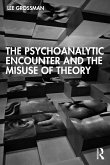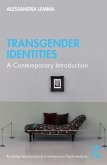"I can't tell anyone, so I tell everyone", wrote Frigyes Karinthy1 in one of his poems, lending his voice to all those who hide silently behind their actions before deciding to take up a pen and expose their thoughts. To be able to do this, to "tell everyone", one has to ignore the time-honoured adage: "A secret life is a happy life". But the desire to "have one's say" triumphs over the fear of confronting the world with all its dangers, real or imaginary. A psychoanalyst who undertakes to go over the course of her professional life and presents the ideas connected with it will, of course, revive certain memories. To be able to speak about herself, the analyst, like everyone else, must overcome some resistance. Analytic practice is based on the ability to listen, to remain attentive to the other. However, an analyst can only listen to those who come to him in search of themselves if he listens to himself. Immersion into the patient's past causes his own past to resurface. By changing the internal narration, the analysis makes it possible to carve out a place for oneself in the world. The psychoanalyst chooses this practice out of a desire to understand, but as the author of the present work points out, at times he must also be able to accept his own inability to understand, or the fact that he may misunderstand. The practice of psychoanalysis gives rise to questions formulated in discussions with colleagues.
Hinweis: Dieser Artikel kann nur an eine deutsche Lieferadresse ausgeliefert werden.
Hinweis: Dieser Artikel kann nur an eine deutsche Lieferadresse ausgeliefert werden.









